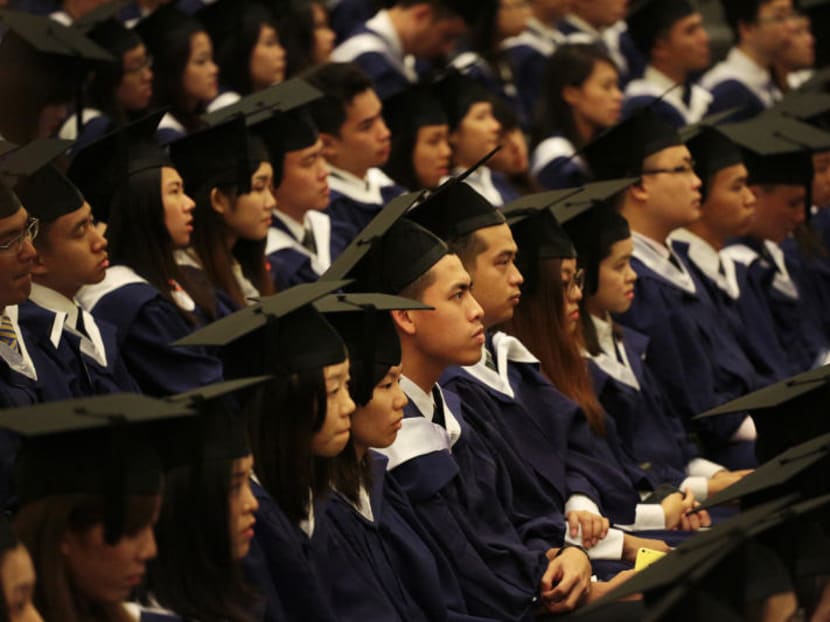Affordability of 4-year degree in S’pore to worsen by 2030: EIU study
SINGAPORE — By 2030, the cost of a four-year university degree programme in Singapore will make up 70.2 per cent of annual income here, according to a study conducted by the Economist Intelligence Unit (EIU).
SINGAPORE — By 2030, the cost of a four-year university degree programme in Singapore will make up 70.2 per cent of annual income here, according to a study conducted by the Economist Intelligence Unit (EIU).
This is a sharp increase from 53.1 per cent in 2015, placing Singapore 11th out of 25 economies where affordability of a four-year degree as a percentage of annual income is concerned.
The study, called the Yidan Prize Forecast, was sponsored by Yidan Prize Foundation, which was set up by Mr Charles Chen Yidan, co-founder of Tencent. Published yesterday, it sought to measure and forecast access to education as well as the skills being acquired by students, from 2015 to 2030.
It looked at five indicators: Public expenditure on education as a percentage of gross domestic product (GDP), affordability of a four-year degree as a percentage of per capita GDP, youth unemployment, new STEM (science, technology, engineering and mathematics) graduates as a percentage of labour force, and Internet access in schools.
Norway topped the list for affordability of a degree education, at 1 per cent of annual income in 2015, followed by Saudi Arabia and Germany at 1.8 per cent and 3.2 per cent respectively. Affordability was projected to improve slightly for all three countries, which would remain in the top three come 2030.
Outside of the top five economies however, costs rose steeply, such as 19.2 per cent of annual incomes in France (sixth place) and 47.2 per cent in Hong Kong (10th place).
Data on university programme fees were sourced from QS University Rankings. For National University of Singapore and Nanyang Technological University, the ranking listed fees ranging from US$6,000 (S$8,290) to US$8,000 (S$11,054) for local students. The 2030 forecasts were based on rate of inflation for some economies, and on analyst feedback and research for others.
Tuition fees at the local universities have been increasing over the years. Last year, all six local universities raised their tuition fees for the new academic year, with the increases ranging from 0.6 per cent to 8 per cent for local undergraduates.
In terms of public expenditure on education, Norway topped the list at 9 per cent of GDP last year, followed by South Africa (8.5 per cent) and Saudi Arabia (7.3 per cent). Singapore was in 22nd place at 3.4 per cent of GDP.
By 2030, most high-income economies would likely spend less on education, with declining birth rates being one reason, said the EIU.
Norway, for example, would fall to fourth place with spending at 6.4 per cent of GDP, while Singapore would fall to 24th at 2.7 per cent. In terms of new STEM graduates, they formed 0.3 per cent of the workforce in Singapore as of last year (18th). While this would improve to 0.4 per cent by 2030, Singapore would be outpaced by other countries and drop to 20th place.
Youth unemployment rate (for persons aged 15 to 24 years old) for Singapore would improve from 10.9 per cent (ninth place) to 10.8 per cent come 2030 (sixth place).
As for Internet access in schools, Singapore placed third, but would slip to fourth place in 2030.










